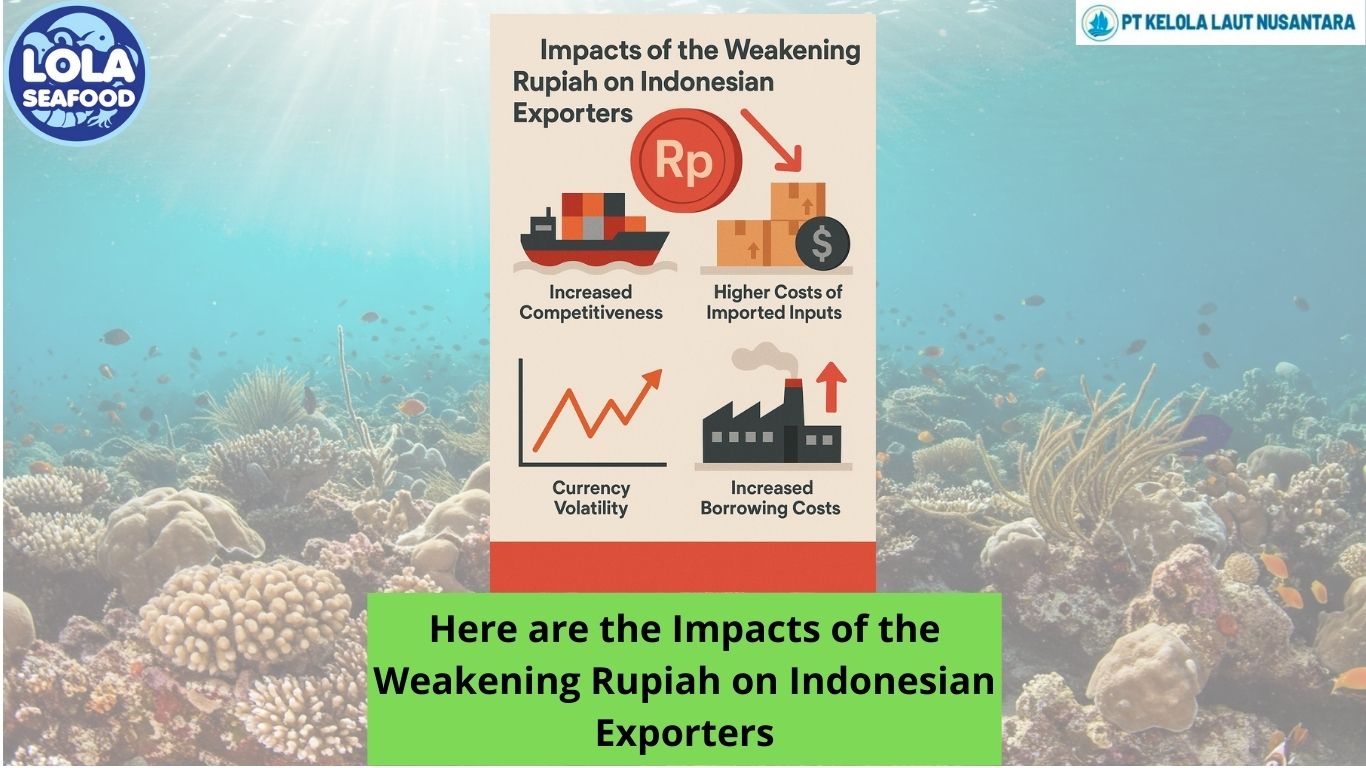These Are The 11 Factors That Influence The Fluctuation Of The Rupiah Exchange Rate On The Global Market.
By. Fajar - 12 Dec 2024 (2).png)
kelolalautnusantara.com The exchange rate of a currency, including the Rupiah, is significantly influenced by the dynamics of international markets. These fluctuations reflect the interaction of various economic, political, and social factors affecting currency demand and supply. Below are the main factors that influence Rupiah exchange rate movements in international markets:
- Inflation Rate Differentials
Higher inflation in Indonesia compared to major trading partners can reduce the competitiveness of export products. This decreases demand for the Rupiah, leading to its depreciation. Conversely, lower inflation tends to strengthen the currency. - Interest Rates
Bank Indonesia (BI) uses interest rates as an instrument to maintain exchange rate stability. High interest rates attract foreign portfolio investments, such as bonds, increasing demand for the Rupiah. However, higher interest rates may also dampen domestic economic activity. - Trade Balance and Current Account
A deficit in the trade balance or current account indicates that imports exceed exports, increasing demand for foreign currency and weakening the Rupiah. Conversely, a trade surplus strengthens the Rupiah. - Foreign Capital Flows (Inflow and Outflow)
Foreign investors significantly influence the Rupiah through direct investments (FDI) or portfolio investments. When foreign investment increases, Rupiah demand rises. However, capital outflows due to economic or political uncertainty can weaken the Rupiah. - Prices of Key Export Commodities
Indonesia is a major exporter of commodities such as palm oil, coal, and nickel. A decline in commodity prices can reduce foreign exchange earnings, weakening the Rupiah. Conversely, higher commodity prices tend to strengthen the currency. - Global Economic and Political Conditions
Global economic turmoil, such as financial crises, trade wars, or pandemics, can drive capital flows to safe-haven currencies like the US Dollar, weakening the Rupiah. Domestic political stability also plays a vital role in maintaining investor confidence. - Central Bank Intervention
Bank Indonesia can intervene in the foreign exchange market to stabilize the Rupiah, either by selling or buying foreign currencies or implementing other monetary policies. - Market Speculation
Market players' expectations about Indonesia's economic future also influence the exchange rate. If the market expects the Rupiah to weaken, they tend to sell Rupiah, further depreciating its value. - Movements in the US Dollar
The US Dollar holds a dominant position in the global financial system. Changes in the Dollar's exchange rate against major currencies like the Euro and Yen often impact the Rupiah. A stronger Dollar, often due to tighter monetary policies in the US, tends to weaken the Rupiah. - Domestic Stock Market Performance
The performance of the Indonesia Stock Exchange (IDX) can reflect foreign investor interest in Indonesian assets. A positive trend in the stock market increases foreign investment, boosting Rupiah demand and strengthening its value. - External Debt and Sovereign Credit Risk
Indonesia's foreign debt levels influence market perceptions of investment risk. If the debt burden is considered excessive or repayment ability is in doubt, confidence in the Rupiah declines, weakening its exchange rate.
In conclusion, rupiah exchange rate fluctuations reflect the complex interaction of various domestic and global factors. Key influences include inflation rates, interest rates, trade balances, commodity prices, foreign capital flows, and global political-economic stability. Additionally, Bank Indonesia's role in managing monetary policy and intervening in the market is crucial for maintaining exchange rate stability. Furthermore, international market dynamics, including US Dollar movements, market speculation, and domestic economic performance, also play significant roles. To maintain stability, strategic efforts are required through sound macroeconomic management, export diversification, and creating a conducive investment climate.
If you are interested in our Cat Fish Whole Round , Catfish Fillet Skinless ,Catfish Steak please do not hesitate to contact us through email and/or whatsapp.

.jpg)
.jpg)
.jpg)




